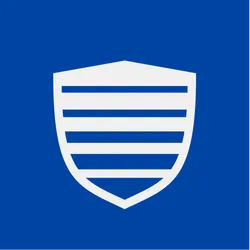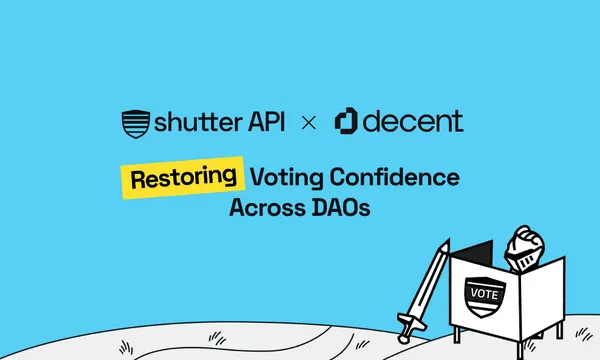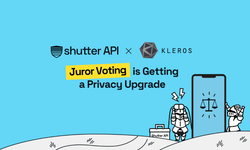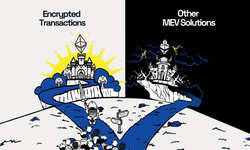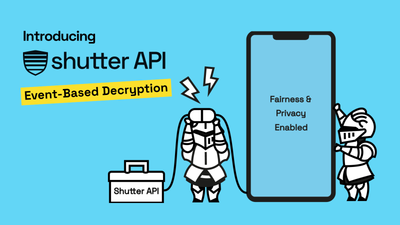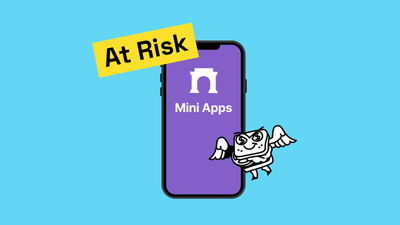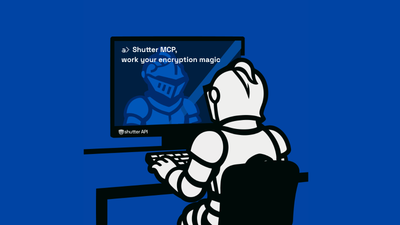Voting is at the core of democracy and decision-making, however DAOs confidence in voting processes is increasingly strained.
People are questioning whether votes truly count or if the systems are secure and fair. DAOs, which promised a new paradigm, are grappling with low participation, “whale” voters, and security exploits. All of this points to an urgent question: How can we build a better DAO governance model and bring more confidence?
In this post, we’ll look at real problems in DAO governance that show how voting is currently broken or distrusted. Then we will introduce how Decent DAO, a governance platform for DAO voting, plans to integrate Shutter API’s Shielded Voting service as part of its aim to improve DAO voting confidence.
DAO Governance: New Technology, Old Problems
DAOs were supposed to revolutionize governance. In the crypto community, many of us believed that by putting governance on the blockchain - transparently recorded and executed by code - we’d avoid the pitfalls of traditional systems. No more smoke-filled back rooms or corrupt officials; token holders could vote directly on proposals, and the blockchain would faithfully carry out the outcome.
And indeed, DAOs have achieved some amazing feats. They’ve coordinated billions of dollars in assets and allowed global communities to self-govern without a central company boss. But as DAOs have grown, fissures in the model have appeared.
- Low Turnout and Voter Apathy: Getting people to vote is hard, even when the stakes are high and it’s just a few clicks away. Many DAOs struggle with voter participation rates that would make even U.S. midterm elections look good. It’s not uncommon to see only 5% or 10% of token holders actively voting on important proposals. Some holders simply aren’t paying attention or don’t feel informed. But there’s also a psychological effect: if a regular token holder sees that whales have already voted overwhelmingly one way, they might feel their small vote won’t matter. Constant voting fatigue sets in - when every parameter change or funding decision requires a vote, people tune out. Result: Quorum can be hard to reach, and decisions end up being made by an active few.
- Whales and Plutocracy: Most token votes are proportional to holdings - “one token, one vote.” This has led to scenarios where a handful of big investors hold decisive power. This concentration undermines the ethos of decentralization. It also introduces conflicts of interest – what if those large holders vote in ways that favor them but not the community at large? Vitalik Buterin has warned that coin voting can become a de facto plutocracy. In a few high-profile cases, big token holders have been accused of colluding off-chain to orchestrate votes. When smaller participants suspect whales coordinate behind the scenes, it erodes trust in the fairness of the process. It feels like the same old power structures, just with new tokens.
- Social Pressures and Lack of Privacy: Interestingly, blockchain governance brought back a problem we solved long ago in political elections - the lack of ballot secrecy. In most DAOs, votes are public. You can see which address voted for what, often even before the vote concludes (unless a commit-reveal or similar scheme is used). This transparency is double-edged. On one hand, it allows the community to audit results. On the other hand, it means influential members might pressure others, or voters might be hesitant to go against the crowd. For example, imagine a DAO where a powerful core team member strongly supports a proposal – some participants might feel intimidated to vote “no” because everyone will see their address voting against the boss. Or conversely, a voter might just bandwagon with the majority because the running tally is public. This “herding” effect can stifle honest opinion. Even more worryingly, the lack of privacy opens the door to vote buying - someone could pay token holders for voting a certain way and then verify they did so on-chain.
The bottom line: DAOs, for all their innovation, have inherited many of the same trust and legitimacy issues found in traditional voting. If people don’t trust the process, DAOs can’t function effectively. We risk disillusioned participants, power consolidation, and ossified governance - the very outcomes we sought to escape.
Yet, the beauty of DAOs is that they’re programmable. We aren’t stuck with the status quo. This is where encrypted voting comes in.
Users Demand Private Voting
To truly fix voting, privacy and security must go hand in hand with the voting process. Through community feedback and internal research, Decent DAO uncovered a clear pattern: many DAO participants want true secret ballot voting, where individual choices remain permanently confidential, just like in traditional elections. For sensitive or contentious proposals, voters may still hesitate to participate if they know their vote will eventually be revealed.
Recognizing this, Decent DAO is working toward a long-term vision of fully anonymous voting, where ballots remain private forever. This level of anonymity strengthens voter confidence, boosts participation, and removes the fear of manipulation or retaliation.
As an important step in that direction, Decent DAO is implementing Shielded Voting with Shutter API. This approach brings meaningful privacy to DAOs today by encrypting votes during the voting period and revealing them only after the vote concludes. It offers the best of both worlds: the protection of a secret ballot while voting, and full transparency and verifiability once the process is complete. It’s a major step forward in rebuilding trust and integrity in DAO governance.
Shielded Voting: Bringing Back the Secret Ballot (With a Twist)
Let’s take a look at how on-chain Shielded Voting works and the full benefits it provides.
How Shielded Voting Works: In a shielded on-chain vote, when you cast your vote it doesn’t immediately appear in the clear on the blockchain. Instead, it’s encrypted - like a locked ballot. Think of it as dropping your vote into a digital ballot box that no one can open until it’s time to count. Multiple teams (or nodes) hold pieces of the decryption key, so no single party can peek at the votes early. When the voting period is over, the system gathers the key shares to decrypt all the votes at once. Then the votes are revealed and tallied on-chain, and the proposal outcome is determined. This approach uses threshold encryption, meaning a certain threshold of key holders (say, a majority of them) must collaborate to decrypt - no lone actor can violate the secrecy.
The result is a win-win: during the vote, everything stays private, preventing undue influence; after the vote, the outcome is verifiable on-chain and each vote can be audited just like a normal on-chain vote (only now they’re finally visible). Essentially, we introduce a time delay on transparency - temporary privacy, permanent accountability. As the Shutter Network team succinctly put it, with this system “votes are encrypted during the voting period” and only decrypted after the poll closes.
What does this achieve? A lot. Shielded voting makes voting more fair and honest by neutralizing several problems:
- Prevents Herding and Bandwagon Effects: If you can’t see live results, you won’t be swayed by how others have voted. Each person votes based on their own conviction or knowledge, not on strategic guesses about what’s popular. This was a key motivation for Shutter’s Shielded Voting tool - “you wouldn’t want to reveal voting results before polling stations close,” because it biases the outcome. With encrypted votes, every voter has the same information going in, restoring what researchers call pre-voting information symmetry. No more advantage for the last-minute voter who currently can see 90% of people voted yes and might just jump on the bandwagon. As a result, the final outcome better reflects true preferences, not just momentum. This improves the perceived fairness of the decision.
- Encourages Sincere Voting and Participation: Shielded voting helps people vote honestly. For example, imagine a Shielded Voting interface where you can’t see how others voted. Voters in this scenario can often feel freer to vote their conscience rather than choosing the most “popular” option since they’re not discouraged by a sense that their vote “won’t make a difference” if the interim tally is lopsided. In other words, keeping votes secret until the end can reduce voter apathy. Shielded voting removes that demotivating factor – you won’t know if your side is losing, so you might as well vote and make your voice heard. This could help lift participation rates, making quorum easier to reach and governance more robust.
- Maintains Trust Through Verifiability: Importantly, Shielded Voting doesn’t mean “just trust us, it was fair.” The beauty of threshold encryption is that once votes are revealed, anyone can verify the count, and cryptographic proofs can attest that the decryption was done correctly without tampering. Projects like Shutter Network have built their protocol so that the entire process is auditable - you can be sure that no votes were leaked early and no fake votes were inserted, thanks to the magic of cryptography. In effect, we get the best of both worlds: privacy during the vote and transparency after. This is a revolutionary upgrade to the on-chain governance toolkit.
Shielded Voting restores information symmetry, strengthens participation, and improves integrity - all without compromising transparency.
But this needs to go even further. Let’s take a look at Decent DAOs integration of Shutter API’s Shielded Voting and the ideas Decent DAO has for rebuilding trust in DAO governance.
The Road Ahead: Rebuilding Trust in DAO Governance
Integrating Shutter API: The Big Picture
Decent DAO is taking a major step forward by integrating Shutter API’s threshold encryption into its governance stack - marking the first time Shielded Voting will run within a Safe-based framework. This isn’t just a technical upgrade; it’s a milestone in the innovation of decentralized governance.
By making Shielded Voting “plug-and-play”, Decent DAO will allow any DAO using their platform to utilize Shielded Voting from day one - no need for custom builds or complex integrations. It’s like shipping a better form of democracy straight into your governance toolkit.
At a high level, the Shielded Voting flow on Decent DAO will be simple, but powerful.
- A proposal is created with Shielded Voting activated
- DAO members vote as normal, but their choices are hidden. Only deployable voting power and quorum status are seen.
- Once the voting period ends, Shutter API releases the decryption key, revealing the voting results.
The end result is a DAO governance process that’s more fair, private, and tamper-resistant.
Improving Standards in Governance
From a broader perspective, Decent DAO’s integration of Shutter API’s Shielded Voting is more than just a technology update - it’s a launchpad for the next generation of decentralized governance. With this integration, Decent DAO is now looking at other future-ready governance mechanisms like quadratic voting, conviction voting, or even pre-authorization protocols, Decent DAO is creating a flexible and fair governance model.
Quadratic voting, for instance, can help tackle "whale dominance" by giving smaller voters proportionately stronger voices, making every vote genuinely impactful. Conviction voting helps communities better signal long-term preferences, filtering out short-term noise. Pre-authorization mechanisms could allow DAOs to automatically act in predefined situations, further streamlining decision-making without sacrificing accountability or transparency.
But beyond these advanced governance methods, Decent DAO will continue on its path towards implementing fully anonymous votes, similar to traditional elections, where each vote remains private permanently.
Reversing the Decline: A New Era for DAO Voting Confidence
As DAO voting continues to face challenges, Decent DAO’s integration of Shutter API’s Shielded Voting represents a meaningful turning point. By prioritizing voter privacy, enhancing security, and thoughtfully evolving governance practices, Decent DAO is not only addressing existing issues but also providing a practical blueprint for restoring confidence - one that the broader DAO community can embrace and build upon.
Stay tuned for technical updates on the progress both teams are making!
